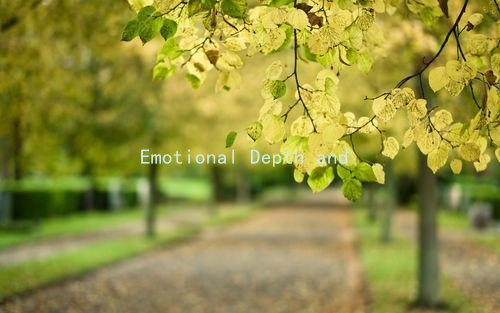Emotional Intelligence in Romance: What It Is and How to Use It
Emotional intelligence (EI) plays a crucial role in building and maintaining successful romantic relationships. It is the ability to understand, manage, and express our own emotions while also recognizing and influencing the emotions of others. In the realm of romance, having a high emotional intelligence can enhance communication, deepen connections, and foster mutual understanding between partners. Here’s a closer look at what emotional intelligence is and how to leverage it in your romantic endeavors.
Understanding Emotional Intelligence
Emotional intelligence consists of four main components:
1. Self-awareness: This involves recognizing your own emotions and how they affect your thoughts and behavior. Self-aware individuals can identify their emotional triggers and understand how these feelings influence their actions towards a partner.
2. Self-management: This is the ability to regulate your emotions, especially in stressful situations. Opting for calm and constructive responses rather than reacting impulsively is crucial for healthy relationship dynamics.
3. Social awareness: This component reflects your ability to empathize with others and understand their emotional states. Being socially aware allows you to recognize when your partner is feeling down or stressed, enabling you to offer support more effectively.
4. Relationship management: This entails using your emotional intelligence skills to nurture positive relationships. Good relationship management involves clear communication, conflict resolution, and the ability to build a supportive and trusting atmosphere.
How to Use Emotional Intelligence in Romance

1. Practice Active Listening: One key aspect of emotional intelligence is the ability to listen actively. This means giving your partner your full attention when they express their feelings or concerns. Validate their emotions and respond thoughtfully, which fosters a deeper sense of connection.
2. Express Your Feelings: Don’t shy away from sharing your emotions. Use “I” statements to communicate how you feel without placing blame. For example, say “I feel anxious when…” rather than “You make me anxious when…”. This reduces defensiveness and encourages an open dialogue.
3. Develop Empathy: Put yourself in your partner’s shoes. Try to feel what they are experiencing, which can lead to a better understanding of their perspective. Ask open-ended questions to invite them to share more about their feelings, demonstrating that you genuinely care.
4. Manage Conflict with Care: Disagreements are natural in any relationship. Instead of letting emotions overwhelm you, take a moment to breathe and assess the situation. Focus on resolving the issue at hand, rather than winning the argument. Remember that it’s you and your partner against the problem, not against each other.
5. Cultivate a Positive Environment: Show appreciation and affection regularly, and celebrate each other’s successes. Positive emotional exchanges strengthen bonds and create a secure haven for both partners, allowing them to be their true selves.
6. Reflect and Improve: Take time to reflect on your interactions with your partner. Consider whether you were appropriately aware of your emotions and those of your partner. Seek to improve areas where you may have fallen short, and be open to constructive feedback.
7. Practice Mindfulness: Being present in the moment can greatly enhance your emotional intelligence. Mindfulness helps you become more aware of your feelings and emotions as they arise, allowing for better self-regulation and enhancing your ability to respond empathetically to your partner.
In conclusion, emotional intelligence is a vital skill that can significantly impact the quality of your romantic relationships. By being self-aware, managing your emotions, empathizing with your partner, and fostering open communication, you can create a strong and lasting bond. Remember, relationships thrive on emotional connections; nurturing these skills can lead to a fulfilling romantic life.





